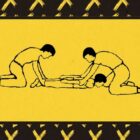
Advocates fear Minnesota students will again be subject to restraint used on George Floyd
|
When they voted earlier this year to let police officers use a dangerous form of restraint on students in schools, Minnesota Democratic lawmakers said they did so because they had brokered a compromise. A task force made up of law enforcement agencies, disability advocates and others would create a model policy aimed at minimizing the use of prone restraint — the face-down hold Minneapolis police officers used to immobilize George Floyd as he suffocated.